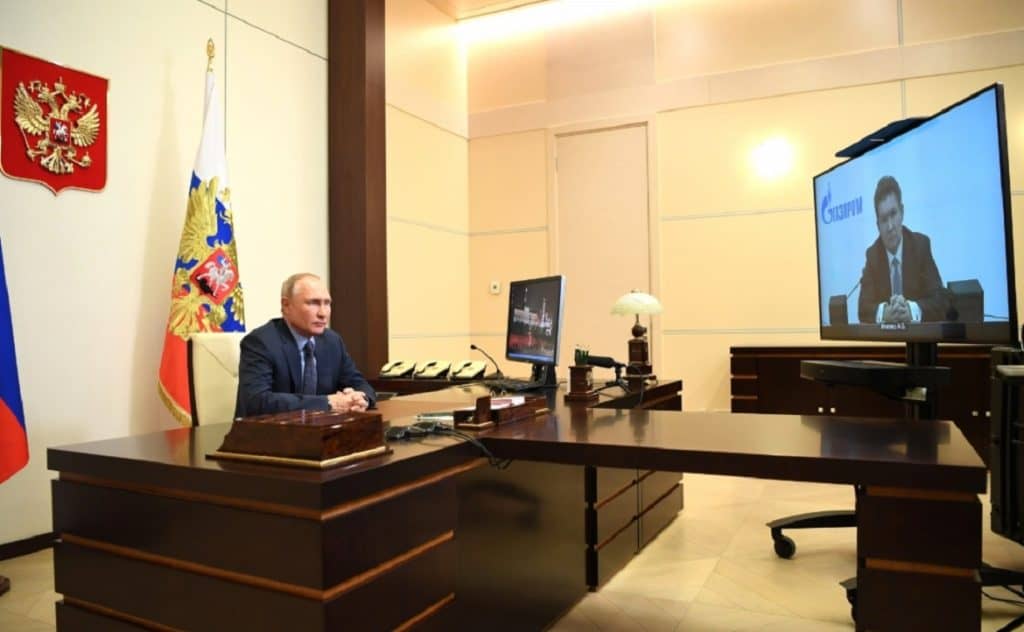By Nikola Mikovic
The Kremlin is persistently trying to create an image of Russia as a global power. Indeed, the Russian Federation is estimated to have more nuclear weapons than the United States, but at the political level Moscow is often showing restraint and even inferiority vis-à-vis the West. How powerful is Russia really?

According to Russian sociopolitical newspaper Novaya Gazeta, over the past 20 years the Kremlin spent $609 on geopolitics, including $224 billion for various energy projects, $270 billion to support its former and present client states, as well as $116 billion for debt relief. Critics could argue that it is nothing compared to what the US, the European Union and the United Kingdom have spent attempting to maintain the narrative of being global powers. However, unlike modern Russia, the Western powers are known for investing money in wars and regime changes, but at the end they almost always benefit from such operations.
For instance, before the 2003 invasion, Iraq’s domestic oil industry was fully nationalized and closed to Western oil companies. Almost two decades of war later, it is largely privatized and utterly dominated by Western corporations. Also, since 1991 the US has invested $5 billion to promote democracy in Ukraine. After the Maidan violent protests in 2013 and 2014 resulted in the overthrow of allegedly pro-Russian President Viktor Yanukovych, the country is heavily in the US sphere of influence. Moreover, the US is believed to be involved in lucrative energy business in Ukraine, not including the Hunter Biden alleged links with Burisma – a Ukrainian-owned private energy company.
Russia, on the other hand, invested at least $39 in Ukraine until 2014, according to Novaya Gazeta analysis, including $3 billion loan that Kiev openly refuses to pay back. Since the former Soviet republic effectively stopped being in Russia’s sphere of influence after the Maidan events, the Kremlin has no mechanism to force Ukraine to make a repayment. In the meantime, Kiev launched several legal cases against Moscow in international courts over Russia’s actions in the Donbass and Crimea. Also, the EU imposed sanctions on Russian energy companies such as Rosneft and Gazprom, as well as on Russian state-owned banks. Some of those companies complained over the EU actions, but in September 2020 the EU Court of Justice rejected Rosneft’s appeal on the legality of imposing sanctions against the company in 2014.
At the same time, the US imposed additional sanctions on companies involved in the Nord Stream 2 pipeline that should provide Russian natural gas to Germany, which is why Gazprom warned that the project may be postponed or even canceled. However, given that the Nord Stream 2 is being funded not only by the Russian energy giant, but also by European companies such as Wintershall Dea and Royal Dutch Shell, it is not improbable that the project will eventually be completed. Still, it is worth noting that Germany pays a relatively low price for Russian natural gas comparing to Belarus – Moscow’s only ally in Europe. On the other hand, Moscow reportedly spent $109 billion in an attempt to keep the Eastern European country in its geopolitical orbit. To this day the Kremlin keeps providing loans to Belarus, apparently expecting the country’s President Alexander Lukashenko to push for deepen integration into the Russia – Belarus Union State.
Besides Belarus, the Kremlin spent hundreds of billions of dollars to support its clients in Syria and Venezuela. Although Moscow-backed President Bashar al-Assad is still in power, and controls around 60 percent of the country’s territory, the key oil fields in the south-east of Syria are de facto controlled by the United States. It is worth remembering that in May 2018 the US military killed dozens of Russian mercenaries from the Wagner private military company, in their alleged attack on the American troops in oil-rich Deir ez-Zor province. Moscow remained silent on this incident. In addition to that, Russian media did not pay much attention to Azerbaijan’s downing Russian helicopter in Armenia in November 2020. Instead, the Kremlin forced its nominal ally Armenia to sign a humiliating capitulation deal that ended the 44-day war against Azerbaijan over Nagorno-Karabakh.
At the same time, Russia and its frenemy Turkey opened a joint center in the Agdam region of Azerbaijan to observe a ceasefire. The two countries now act as major foreign powers in the energy-rich Caucasus region. Moscow and Ankara also play key roles in Syrian and Libyan civil wars, even though Turkey downed Russian jet Sukhoi Su-24 in Syria in 2015, and Russia-backed Syrian Arab Army killed 33 Turkish troops in Syria’s Idlib province in 2015.
In January 2020 Russian and Turkish Presidents Vladimir Putin and Recep Tayyip Erdogan officially opened the 910-kilometer-long (570 mile) TurkStream gas pipeline running under the Black Sea, linking Russia and Turkey. Moscow is also involved in the construction of the Turkey’s first nuclear power plant worth $20 billon. The Akkuyu plant, in Mersin Province, is being built by Russia’s Rosatom State Nuclear Energy Corporation. However, some analysts believe that Moscow’s energy projects are unlikely to pay off, as they are politically motivated, and huge funds for their implementation go primarily to the pockets of contractors.
On the other hand, writing off debts of developing countries is also politically motivated, although it remains unclear what are costs and benefits of such a policy. For instance, over the past two decades, Russia has offered roughly $20 billion in debt relief to Africa. Besides that, Moscow wrote off debts of countries such as Cuba, Vietnam, Mongolia, Iraq, North Korea and Afghanistan.
Lack of transparency, primarily in Russian energy trade, leaves room for various speculations on Moscow’s goals regarding not only debt relief, but its global energy policy as well. The Kremlin propagandists will unlikely miss an opportunity to portray Russia’s actions aboard as Putin’s marvelous geopolitical victories, regardless of the actual cost–benefit analyses.
Author: Nikola Mikovic (Journalist, researcher and analyst based in Serbia. He covers mostly the foreign policies of Russia, Belarus and Ukraine)
(The views expressed in this article belong only to the author and do not necessarily reflect the views of World Geostrategic Insights).
Image Credit: kremlin.ru







